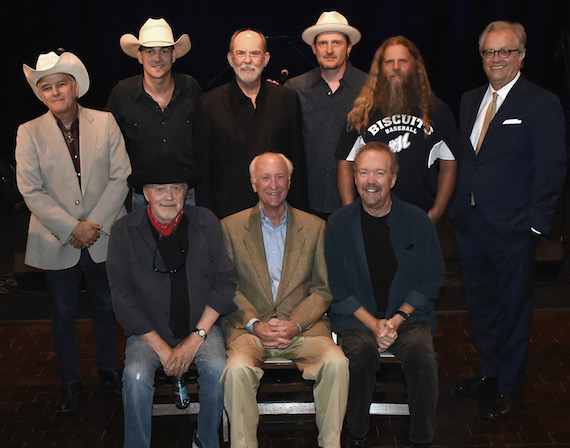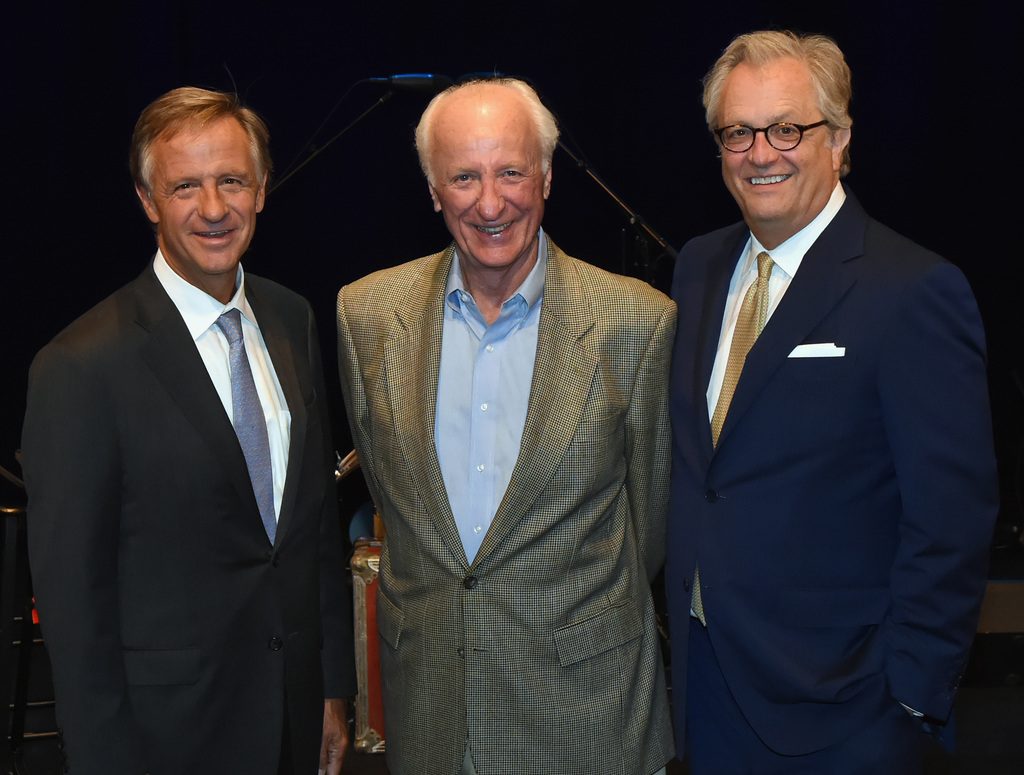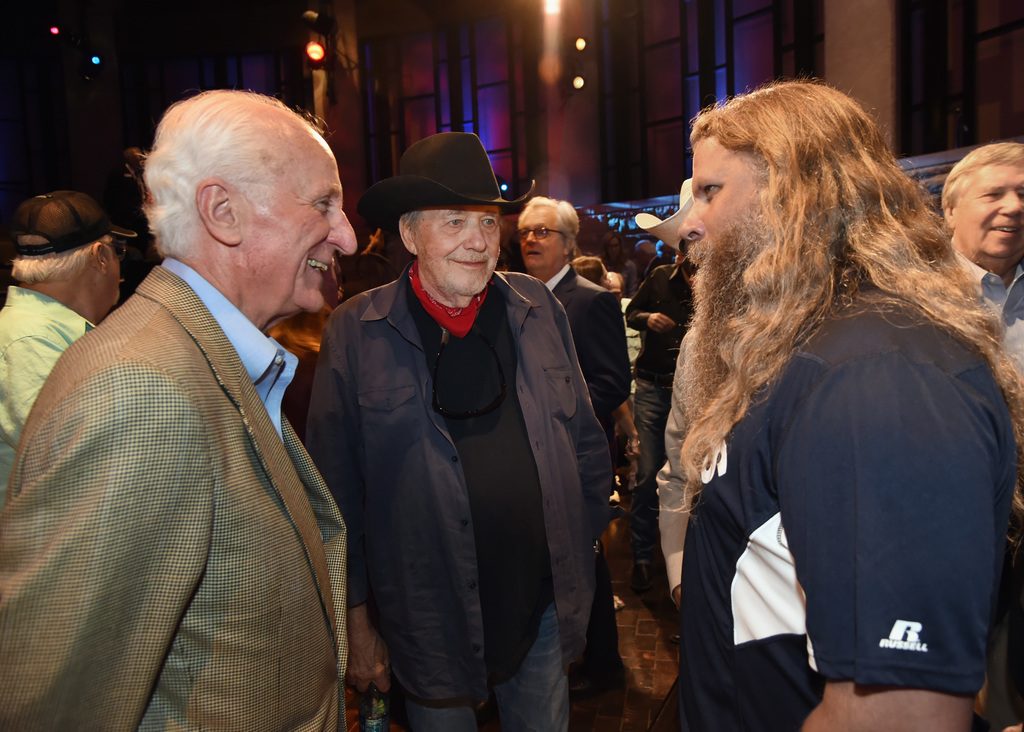

Pictured (L-R, Front row): Bobby Bare, Bob McDill, Don Schlitz; Back row: Jon Byrd, William Michael Morgan, Allen Reynolds, Thomm Jutz, Jamey Johnson, Kyle Young in Nashville, Tennessee. Photo: Rick Diamond/Getty Images for Country Music Hall of Fame & Museum
During his nearly 30-year career, songwriter Bob McDill penned 31 No. 1 songs.
Among his numerous contributions to the country music world are classics including Keith Whitley’s “Don’t Close Your Eyes,” “Amanda” (recorded by both Don Williams and Waylon Jennings), Dan Seals’ “Everything That Glitters Is Not Gold,” Alan Jackson’s “Gone Country,” Mel McDaniels’ “Baby’s Got Her Blue Jeans On” and “Louisiana Saturday Night,” Alabama’s “Song of the South,” “It Must Be Love,” recorded by Don Williams and later by Alan Jackson, and Sammy Kershaw’s “She Don’t Know She’s Beautiful.”
McDill was inducted into the Nashville Songwriters Hall of Fame in 1985. He retired from songwriting in 2000.
For years, the handwritten lyrics to those notable hits and numerous others, some 200 recorded songs, and written on 217 legal pads during this three decades as an active songwriter, sat in McDill’s basement.

Pictured (L-R): Governor Haslam, Bob McDill, and Kyle Young. Rick Diamond/Getty Images for Country Music Hall of Fame & Museum
On Monday (July 31), McDill donated his personal collection to the Country Music Hall of Fame and Museum, including all 217 legal pads of handwritten lyrics, along with 110 awards and plaques, and his Martin 1967 D-28-S that he played exclusively for songwriting for decades.
McDill made a rare public appearance for the donation ceremony, where Bobby Bare performed “Amanda,” Jamey Johnson offered a rendition of “The Door Is Always Open,” Don Schlitz performed “Good Ole Boys Like Me,” Jon Byrd offered “Everything That Glitters (Is Not Gold),” and William Michael Morgan sang “Don’t Close Your Eyes.”
“McDill’s donation to this museum is one of astounding consequence,” said Country Music Hall of Fame and Museum CEO Kyle Young. “We are humbled and honored by his generosity, and we will use this collection to educate generations of songwriters and scholars on the extraordinary career and craft of Bob McDill.”

Pictured: Bob McDill, Bobby Bare, Jamey Johnson. Rick Diamond/Getty Images for Country Music Hall of Fame & Museum
McDill, a Beaumont, Texas native, was influenced by the writing of Thomas Wolfe, as well as played by radio DJs including WLAC (Nashville)’s John Richbourg and WXLR (Texas)’s Wolfman Jack. McDill began writing songs at age 15 and later played in the folk group the Newcomers. While a student at Lamar University, he wrote “The Happy Man,” which Perry Como recorded in 1967. The next year, McDill had his second hit, “Black Sheep,” recorded by Sam the Sham & the Pharoahs. Allen Reynolds helped McDill place the song, and in 1970, McDill and Reynolds began working for Jack Clement’s publishing company, Jack Music.
McDill’s first country success came with Johnny Russell’s 1972 recording of “Catfish John,” co-written with Reynolds. McDill began a rigorous schedule of completing one song per week for the next three decades and would go on to score dozens of Billboard #1 hits, for artists as diverse as Ray Charles, Jerry Lee Lewis, Anne Murray, Lefty Frizzell and Joe Cocker.

Category: Artist, Featured, Publishing
About the Author
Jessica Nicholson serves as the Managing Editor for MusicRow magazine. Her previous music journalism experience includes work with Country Weekly magazine and Contemporary Christian Music (CCM) magazine. She holds a BBA degree in Music Business and Marketing from Belmont University. She welcomes your feedback at jnicholson@musicrow.com.View Author Profile


